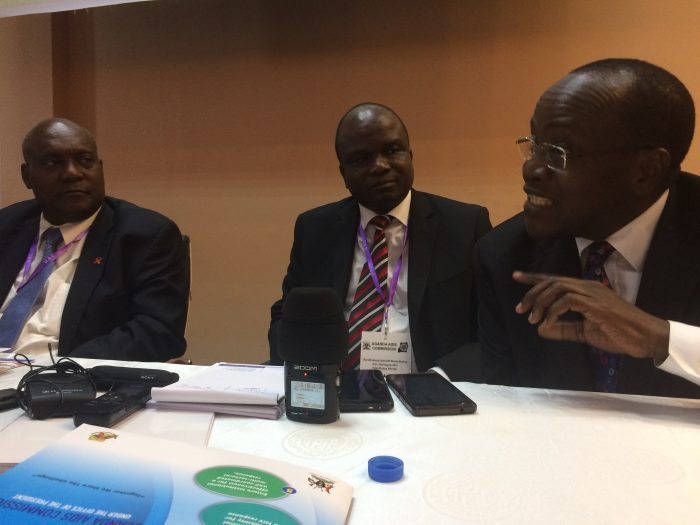By. Adiga Julius
The head of HIV/AIDS control in the health ministry Dr. Joshua Musinguzi reveals that they are considering changing the strategy used to test for HIV/AIDS.
According to Musinguzi, change of strategy follows the continued massive and nondiscriminatory testing which sometimes provides or covers the untargeted groups and sometimes leaves out the targeted groups.
He further says the new approach will comprise of case approach which targets for only those they are aiming to meet.
In the new policy, they are introducing index testing which involves partner or case identification which involves females alerting officials and provide details of their male partners who then are carefully focused on for testing.
89% of people living with HIV have so far been diagnosed and put on treatment and extra 200,000 people are still being looked out for.
Testing only costs USD.21M which according to Dr. Musinguzi can be used to provide for better treatment and care if the new approach is well implemented.
But the director general Uganda AIDS Commission, Dr. Nelson Musoba is worried about the bigger numbers of babies bone with HIV/AIDS and are not put on treatment.
Musoba who was giving his remarks at the 12th annual joint AIDS review conference today in Kampala attributes the increasing numbers to positive mothers who don’t turn up for postnatal care to fully examine them and the children.
He further notes that this continues to put the lives of these babies at high risk as well as those that they are meeting in the communities.
Meanwhile, the state minister for housing Dr. Chris Baryomosi who read the premier’s speech expressed worries over the increasing new infection and mainly among the youth.
He now calls for concerted efforts from all stakeholders to see to it that the trend is reversed.
UNAIDS statistics reveal that Uganda registers 1000 new infections and 500 HIV/AIDS death weekly among the 1000 new infections, a third comprises of youth.
The annual joint review running for two days under the theme, empowering the young people to champion the end of new HIV infections will develop strategies for the country on how best to counter HIV/AIDS for the next five years.

























